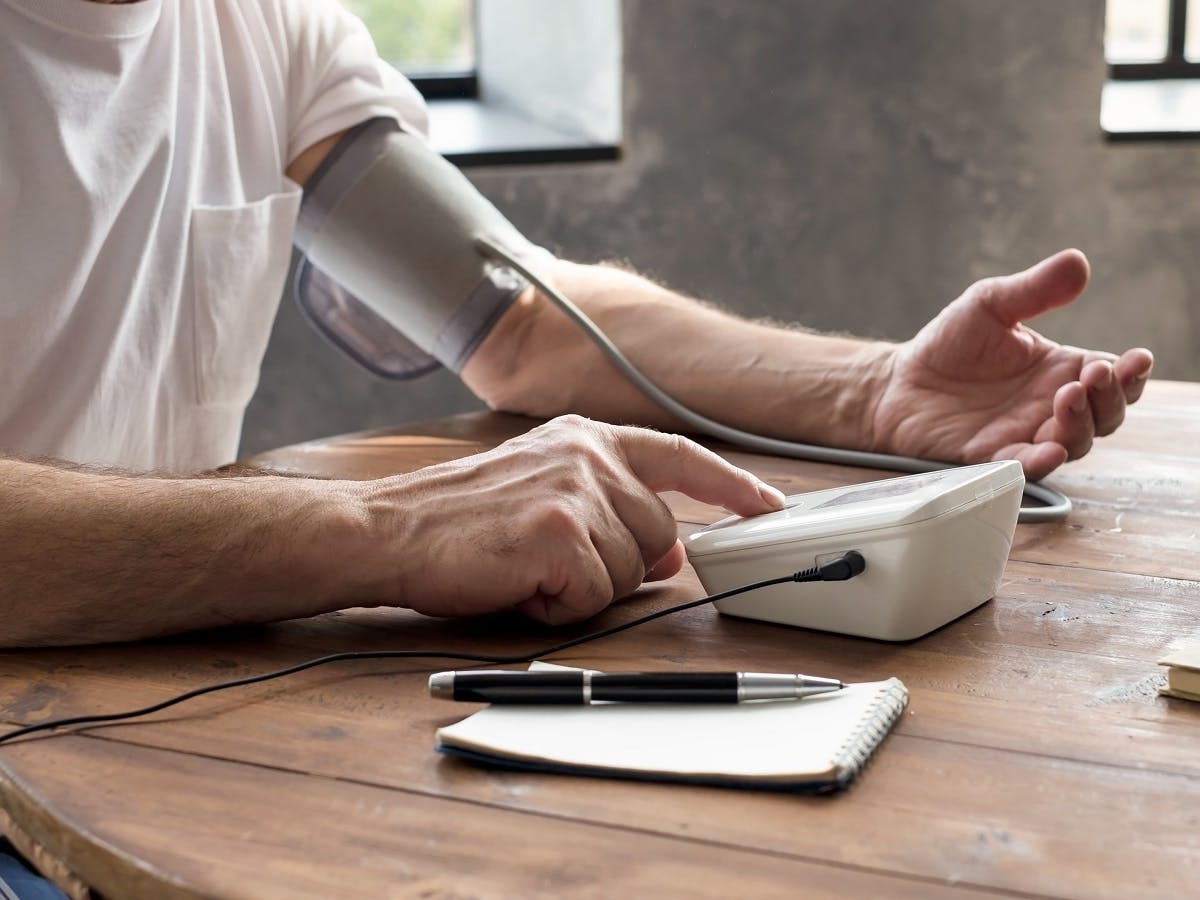
You can buy a blood pressure cuff over the counter at your local pharmacy. Here's what to know if you're thinking of buying one.
We all know how important it is to maintain a healthy blood pressure. High blood pressure, also known as hypertension, can cause an abundance of serious health issues, including heart attack, heart disease, and stroke. But if you don’t regularly get your blood pressure checked, you may not even know you have it."The biggest challenge is that there are generally no symptoms associated with high blood pressure. That's why they call it the silent killer,” Dr. Ivan Porter, nephrology and hypertension expert, told Mayo Clinic’s News Network.
A healthy, normal blood pressure is considered 120/80 or below, according to the American Heart Association. But almost half of U.S. adults — about 116 million, according to the CDC — have numbers above that, which means nearly half the adults in the United States have hypertension.
While most people just get their blood pressure checked at doctor’s visits, self-monitoring, meaning checking your own levels at home, has been shown to help reduce and maintain healthy levels.
Why would you need to self-monitor?
There are a few reasons your doctor might advise you to check your blood pressure at home.
Sometimes people experience what is called “white coat hypertension,” which means patients’ blood pressure is higher at the doctor’s office than in any other standard setting. Many experts chalk this up to people being nervous at doctors appointments, thus contributing to a higher reading. Taking it comfortably home gives a person a clearer picture of their typical blood pressure.
Another reason you might need an OTC blood pressure monitor is If you’re on dialysis at home. In this case, it’s crucial that you have the most up-to-date and accurate blood pressure reading. High blood pressure is a major contributing factor in kidney disease.
Finally, if you’ve been diagnosed with hypertension, doctors might suggest that you regularly monitor your blood pressure at home to keep an eye on it. Sometimes just regularly monitoring your blood pressure can inspire you to make lifestyle changes to better control it.
Buying a blood pressure monitor
When it comes to blood pressure monitoring devices that you can use at home, you have a lot of options, and you don’t need a prescription before buying one. There are manual devices and electrical ones. And you can find devices that read from the wrist, finger, and arm.
The American Heart Association recommends an automatic (meaning, electric) blood pressure cuff that goes around the bicep because it yields a more accurate reading than those that go around the finger or wrist. Automatic tends to be more accurate than manual for at-home devices.
Obviously, an inaccurate blood pressure monitor is of little use. Sadly, some OTC monitors are less accurate than others–sometimes by a significant amount. Do some homework before you buy. You can find a recently published Consumer Reports guide that has reviewed the best home blood pressure monitors for 2023. Check the US Blood Pressure Validated Device Listing for a list of monitors that meet the accuracy standards of an independent review process. Your doctor should also be able to guide you to a good choice.
After purchasing a monitor, bring it with you to your next doctor’s appointment. Your doctor can compare the results from your monitor to those of the professional, in-office one. You can also discuss how to use your at-home monitor to get the most accurate reading.
Learn about 6 ways to prevent heart disease.
Does Medicare cover at-home blood pressure monitors?
At-home monitors will usually cost you anywhere from $50 to $100. While Medicare Part A will cover blood pressure checks while inpatient at the hospital, and Medicare Part B will cover any checks while at a doctor’s visit, Original Medicare usually won’t cover a purchase for a home monitor. But a Medicare Advantage plan might. Check plans available in your area to see if they provide this benefit.
Do you have Medicare questions? We have answers.
When it comes to Medicare, one plan definitely does not fit all. At ClearMatch, it’s our mission to match you to the policy that best serves your unique needs. It’s all we do, and we do it better than anyone. Check out our extensive library of articles for answers to your Medicare questions. Or, compare plans in your area to get started finding the policy that’s right for you.
Additional resources
- ClearMatch Medicare: Find a Medicare Plan
- Mayo Clinic: The Silent Killer: Know Your Numbers
- American Heart Association: High Blood Pressure
- American Heart Association: Monitoring Your Blood Pressure At Home
- CDC.gov: Facts About Hypertension
- Cochrane Library: Interventions Used to Improve Control of Blood Pressure in Patients with Hypertension
- Harvard Health Publishing: Some Home Blood Pressure Monitors Aren't Accurate
- Consumer Reports: Best Home Blood Pressure Monitors of 2023
- Validate Blood Pressure: Blood Pressure Devices



